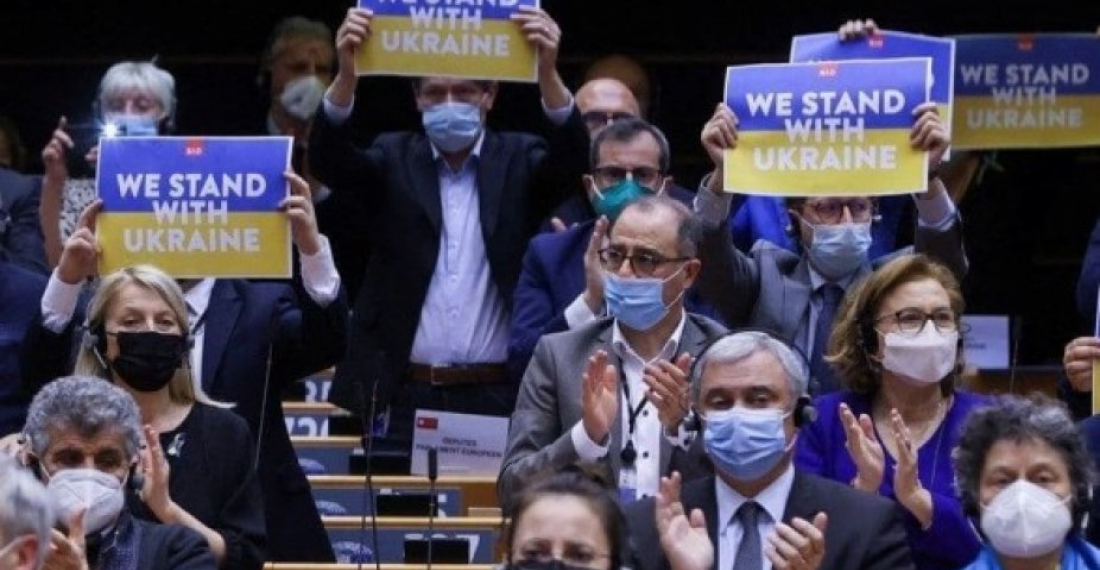This editorial was prepared by the editorial team of commonspace.eu
The European Parliament on Tuesday (1 March) held an emotional session to discuss the situation in Ukraine, after which it adopted a resolution by an overwhelming majority that strongly condemns Russia’s illegal invasion and called for stronger sanctions against Russia.
MEPs also urged EU countries to work towards granting Ukraine EU candidate status.
The resolution calls on the EU institutions to work towards granting the country EU candidate status. Any such procedure should be in line with Article 49 of the Treaty on European Union and based on merit, the text says. In the meantime, the EU should continue to work towards Ukraine’s integration into the EU single market along the lines of the existing EU-Ukraine Association Agreement.
This perhaps was the most significant point in the resolution. It relates directly to competencies of the European Parliament and it is one aspect where the voice of the parliament matters a lot. It must therefore be seen as a very positive development.
The issue of membership perspective to Ukraine, Moldova and Georgia has been a rather sore point in the relations between the three countries and the European Union. As recently as the last Eastern Partnership summit held in Brussels last December the trio worked hard to persuade the EU to take a first step in this direction, without much success. This inevitably results in disappointment and frustration. It took a Russian invasion, a humanitarian crisis, and an emotional appeal by an embattled President Zelensky to the European Parliament for the first dent in the EU's stonewalling to appear. It should not have been so, but now all must make the most of it.
A membership perspective is not membership. It is a political signal that the door of membership is open, and an opportunity to focus minds on all the sides to start the long and laborious process of EU membership.
Whilst the resolution of the European Parliament speaks only about Ukraine, the three trio countries should be given the membership perspective and candidate status simultaneously. All three are very determined in pursuing this path; all three have strong Association Agreements with the EU; and all three are under considerable Russian pressure. A membership perspective will strengthen the hand of those working for reforms in these countries. It will also send another message to Putin's Russia that its nefarious policy towards the neighbours has failed. Now is the right time to do that.
Give Ukraine, Moldova and Georgia a membership perspective now! Give them candidate status and work with them to make this an achievable task within this decade.






